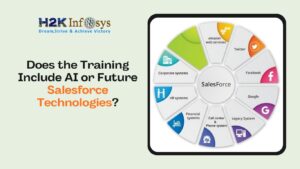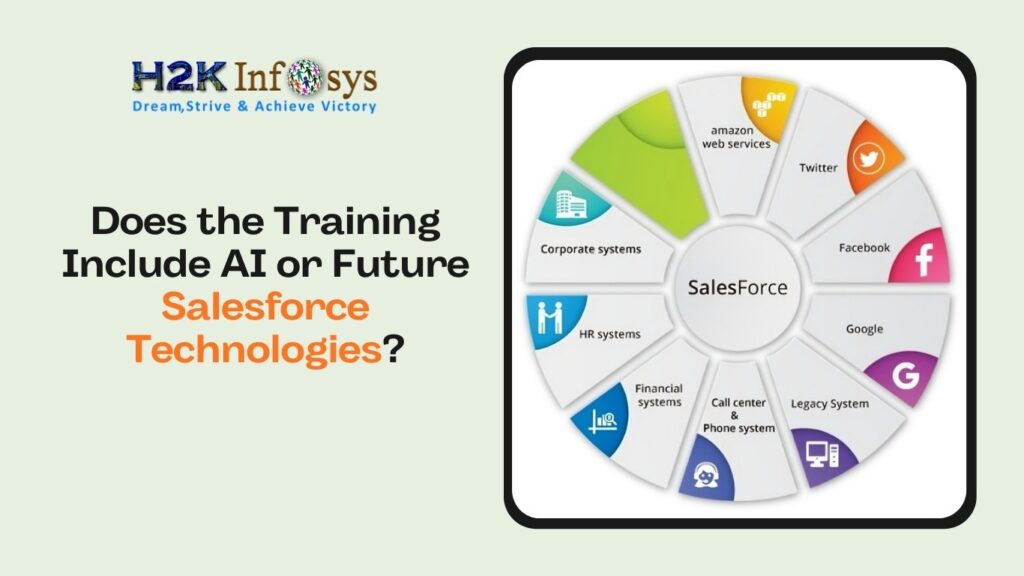In today’s data-driven, tech-centric business world, the role of a Top 7 Technical Skills Hiring Managers Want in Business Analysts has evolved far beyond traditional requirement gathering. While soft skills like communication and problem-solving remain essential, technical skills are now equally critical. Hiring managers seek Business Analysts who not only understand business processes but can also work with data, tools, and technology effectively.
Whether you’re an aspiring analyst or an experienced professional looking to stay relevant, mastering the right technical skills is non-negotiable. This explores the top 7 technical skills hiring managers expect from modern Business Analysts and how you can develop them through proper Business Analysis Training Online.
SQL and Data Querying Skills
Why It Matters:
In almost every domain finance, healthcare, retail, or IT data is king. Business Analysts are increasingly required to pull, filter, and analyze data to support business decisions. Structured Query Language (SQL) remains the standard tool for this purpose.
What Hiring Managers Look For:
- Ability to write queries using SELECT, JOIN, GROUP BY, and WHERE clauses
- Understanding of relational databases and data types
- Ability to analyze trends, inconsistencies, and anomalies in datasets
Example Use Case:
A BA working for a retail company might use SQL to analyze customer purchase patterns across different regions to support a targeted marketing campaign.
How to Learn It:
Business Analyst training programs often include a SQL module with hands-on assignments and sample databases to practice on.
Data Visualization and BI Tools
Why It Matters:
Raw data doesn’t speak clearly to stakeholders. Business Analysts are expected to convert numbers into visual insights that influence strategic decisions. Visualization tools help BAs summarize findings in dashboards and charts that drive clarity.

Top Tools to Know:
- Tableau
- Microsoft Power BI
- Google Data Studio
What Hiring Managers Look For:
- Ability to create interactive dashboards
- Skills in chart selection and storytelling with data
- Proficiency in connecting BI tools to databases or Excel
Example Use Case:
A BA may use Power BI to create a sales performance dashboard for a C-level executive to review quarterly metrics.
How to Learn It:
Most online Business Analyst training courses offer BI tool instruction using real-world datasets and case studies.
Excel – Advanced Proficiency
Why It Matters:
Despite the availability of advanced tools, Excel remains a staple in every Business Analyst’s toolkit. From pivot tables to VLOOKUPs and macros, Excel offers unmatched flexibility in handling ad-hoc analysis.
What Hiring Managers Expect:
- Use of advanced formulas and data functions (INDEX-MATCH, IFERROR, etc.)
- Ability to build dynamic reports and dashboards
- Knowledge of what-if analysis, goal seek, and scenario planning
Example Use Case:
A BA may use Excel to simulate cost-saving scenarios by adjusting vendor contracts in a procurement department.
Pro Tip:
Learning Excel in conjunction with tools like Power Query or integrating Excel with Power BI can set you apart.
Business Process Modeling (BPM)
Why It Matters:
Understanding and visualizing current and future business processes helps stakeholders align on changes and improvements. BPM tools and techniques help BAs communicate workflows, identify bottlenecks, and propose solutions.
Common Modeling Techniques:
- BPMN (Business Process Model and Notation)
- Flowcharts
- Use Case Diagrams
- Swimlane Diagrams
Popular Tools:
- Lucidchart
- Visio
- Draw.io
What Hiring Managers Look For:
- Ability to model “as-is” and “to-be” processes
- Understanding of roles, decision points, and system interactions
- Use of standard notations and diagramming best practices
Example Use Case:
A Business Analyst in an insurance company may model the claim approval workflow to identify areas of delay and recommend automation.
How to Learn It:
Business Analyst certification programs often teach BPM along with hands-on assignments using real-world use cases.
Requirements Gathering and Documentation Tools
Why It Matters:
Capturing and clearly documenting business requirements is at the heart of the BA role. The ability to use specialized tools to manage and communicate these requirements streamlines the development lifecycle and reduces misunderstandings.
Top Tools:
- Jira
- Confluence
- Trello
- SharePoint
- Balsamiq (for wireframes)
What Hiring Managers Look For:
- Ability to write effective user stories and acceptance criteria
- Familiarity with agile boards, sprints, and epics in Jira
- Experience documenting functional and non-functional requirements
Example Use Case:
A BA working in Agile Scrum might write user stories in Jira for a new CRM integration and use Confluence for team documentation.

How to Learn It:
A good Business Analyst training course should include modules on Agile documentation, user story writing, and tool-based demonstrations.
Understanding of SDLC and Agile Methodologies
Why It Matters:
Hiring managers increasingly favor BAs who understand the Software Development Life Cycle (SDLC) and modern development approaches like Agile, Scrum, or Kanban. This allows BAs to collaborate effectively with development and QA teams.
What Hiring Managers Look For:
- Understanding of SDLC phases: requirements, design, testing, deployment
- Familiarity with Agile ceremonies (standups, sprint planning, retrospectives)
- Experience writing and managing product backlogs
Example Use Case:
A BA in an Agile project may collaborate with the product owner to prioritize backlog items and help define the sprint scope.
Certifications That Help:
- Certified ScrumMaster (CSM)
- Agile Certified Practitioner (PMI-ACP)
- Business Analyst training with Agile modules
Basic Understanding of Programming and APIs
Why It Matters:
While Business Analysts don’t need to be full-time coders, understanding the basics of programming logic and APIs helps bridge the gap between business and development teams. This is especially valuable in tech-driven roles such as fintech, e-commerce, or SaaS.
Languages/Concepts Worth Knowing:
- JSON/XML for reading data structures
- Basics of Python (for data analysis or automation)
- RESTful APIs and endpoints
- Swagger for API documentation
What Hiring Managers Look For:
- Ability to read API documentation and test APIs with tools like Postman
- Understanding of data formats and request/response cycles
- Collaboration with developers during integration planning
Example Use Case:
A BA may test a REST API integration to ensure a vendor portal syncs correctly with the company’s ERP system.
How to Learn It:
Business Analyst training programs that include tech modules often introduce basic programming and API testing practices.
Why These Skills Matter More Than Ever
In today’s digital-first business environment, the role of a Business Analyst has expanded far beyond traditional requirement gathering. Companies are transforming rapidly with technologies like cloud computing, data analytics, artificial intelligence, and automation making technical skills a necessity, not a bonus.
Hiring managers now seek Business Analysts who can bridge the gap between business objectives and technological solutions. Whether it’s writing SQL queries to extract insights, using Power BI to build dashboards, or modeling workflows with Lucidchart, technical skills enable BAs to contribute more directly to solution development.

Agile and DevOps methodologies are becoming standard, requiring Business Analysts to work closely with developers, testers, and product owners in fast-paced environments. Understanding tools like Jira, Confluence, and APIs helps streamline collaboration and ensures alignment across teams.
Moreover, data is at the core of every decision-making process. Business Analysts who can analyze, interpret, and present data using modern tools are in high demand.
As organizations prioritize innovation, agility, and digital transformation, Business Analysts with strong technical capabilities stand out. Mastering these skills not only improves job performance but also opens doors to leadership roles and career advancement in today’s evolving marketplace.
- Rapid digital transformation across industries
- Data-centric decision-making culture
- Agile and DevOps adoption across IT teams
- Growth of automation, AI, and machine learning in business workflows
Companies want BAs who can think strategically and act technically those who can map processes and visualize outcomes while also querying databases and collaborating with developers.
How to Build These Technical Skills
Building the right technical skills as a Business Analyst requires a mix of structured learning, hands-on practice, and continuous improvement. Start by enrolling in a comprehensive Business Analyst training program that covers tools like SQL, Excel, Power BI, Jira, and Lucidchart. These courses often include real world projects and case studies, helping you apply what you learn in practical scenarios.
Next, work on mini-projects or simulations to strengthen your skills. Try writing SQL queries using open source databases, creating dashboards in Power BI or Tableau, or building process maps in Lucidchart. This hands-on approach will help reinforce your learning and give you examples to showcase in interviews or your portfolio.
Take advantage of free resources such as YouTube tutorials, public datasets (like on Kaggle), and trial versions of tools to practice. Learning platforms and blogs also offer guided exercises that can sharpen your analytical thinking.
Pursue relevant certifications such as ECBA (Entry Certificate in Business Analysis), Agile certifications, or tool-specific credentials. These not only boost your resume but also validate your skills to employers.
Lastly, stay updated with evolving trends like data analytics, automation, and cloud technologies. Subscribe to newsletters, attend webinars, and participate in forums to keep learning.
By combining formal training, self-learning, and continuous practice, you’ll develop the technical competencies hiring managers expect from today’s Business Analysts and position yourself for long-term success in the field.
Conclusion: Upskill Today to Lead Tomorrow
Being a Business Analyst in today’s market is no longer just about gathering requirements or writing documents. It’s about translating business needs into technical solutions, communicating with multiple teams, and leveraging data for decision-making.
By mastering these seven technical skills SQL, BI tools, Excel, BPM, documentation tools, Agile methodologies, and API knowledge you position yourself as a valuable asset that hiring managers can’t ignore.
The good news? These skills are learnable. With the right Online Classes for Business Analyst and hands-on practice, you can become a well-rounded, job-ready analyst ready to take on any business or tech challenge.
Ready to build these in-demand skills and land your next Business Analyst role? Explore professional training programs that focus on real tools, real projects, and real results.


























